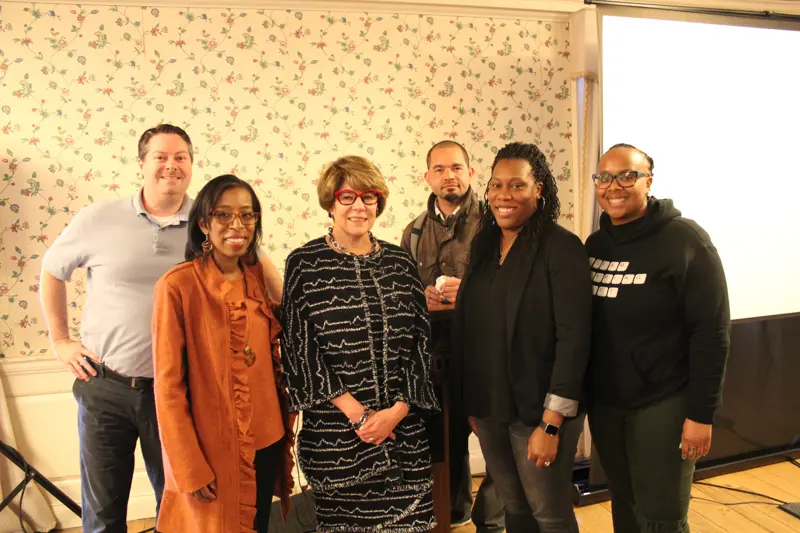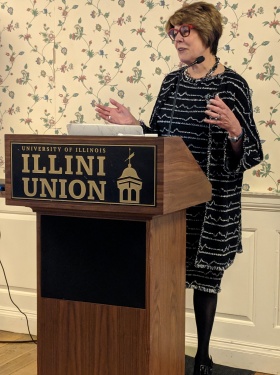On April 25, 2019, Dr. Estela Mara Bensimon, founder and director of the Center for Urban Education (CUE) at the Rossier School of Education at the University of Southern California, presented the final Dean’s Diversity Lecture of the academic year titled “Reclaiming the Racial Justice Meaning of Equity.”
Dr. Bensimon opened her lecture with a reference to U.S. Congresswoman Maxine Waters’ “Reclaiming my time” statement—popularized on social media—to discuss why she felt it necessary to “reclaim” racial justice as a critical component of conversations around equity. Bensimon recalled that when she founded CUE in 1999 and expressed that it would have an explicit focus on racial equity, she was discouraged from using the term “racial equity” because of its association at the time within education and academia with divisiveness, activism, and advocacy.
Bensimon's talk highlighted the lack of understanding of the critical rules and dimensions of racial equity among those who most frequently employ the term.
She further pointed out that, presently, “equity” is prominent and commonplace in the agendas of most educational institutions and philanthropic organizations and has, to some degree, become a catchphrase. Her current focus is on reclaiming the racial-justice meaning of equity to directly combat the trend toward what she called the “whitewashing” of equity.
Bensimon’s talk highlighted the lack of understanding of the critical rules and dimensions of racial equity among those who most frequently employ the term. She defined the racial justice meaning of equity as 1) “a means of corrective justice”; 2) as an antiracist project; and 3) as a “critical lens to magnify whiteness” and make it visible. Dr. Bensimon challenged attendees to think about the many ways that institutions often racialize popular initiatives and reforms without ever naming race specifically or accounting for “the underlying cause of racial inequality.”

Bensimon (third from left in photo with OCCRL staff members) also asked “Why is race missing?” and answered that it’s because those using the term “equity” are often not familiar with, or do not understand, the critical dimensions of equity, which she identifies as 1) accountability to students and 2) recognizing that institutionalized racism is a feature of our educational institutions. In fact, Dr. Bensimon asserted that those in charge of deciding the education reform agenda are often the most problematic with respect to their use of the term “equity.” Subsequently, these individuals often end up doing little more than tinkering around the edges instead of recognizing the ways in which their values, preferences, policies, and practices actually replicate the inequities they’re trying to address.
Ultimately, Dr. Bensimon discussed the critical importance of practitioners and educational leaders developing equity-minded competencies such as being race conscious, using disaggregated data appropriately, and recognizing institutions as racialized spaces. To conclude, she made the point that “racial equity is not a technical problem but a values issue that we’re trying to solve with technical solutions,” leaving audience members to consider the impact of this fact and their own ideas about improving racial-equity work.
